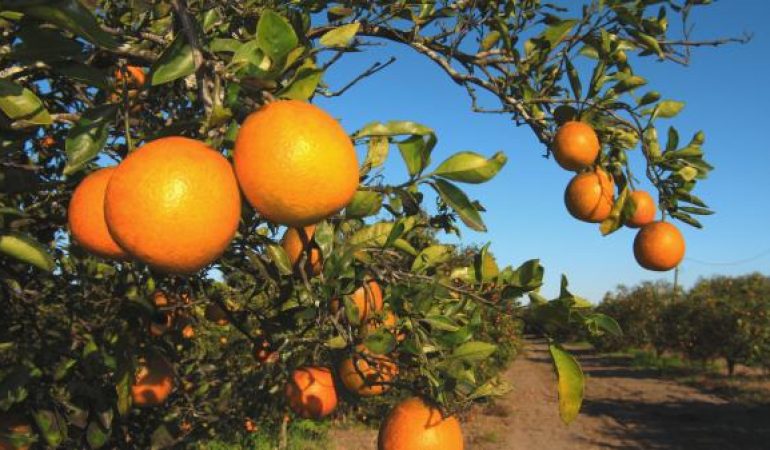Disease drives up orange juice prices
The price of orange juice is forecast to jump after disease ravaged crops and squeezed global supplies.
The world’s largest orange growers, Brazil and Florida, have suffered poor harvests as they struggle to halt the spread of the Asian citrus psyllid. The bug, which spreads citrus greening disease, has led to production in Brazil in 2015 and last year being the lowest for two decades at 14.6 million tonnes.
Florida’s harvest is on course to fall for a fifth season running, the worst decline in more than a century with production forecast at 4.9 million tonnes.
Informa Agribusiness Intelligence, the agricultural and commodities analyst, said that low supply this year would result in high prices of orange juice for at least the next six months. It said the disease had pushed the price of frozen concentrate orange juice up to $3,000 a tonne in Europe from $2,200.
“In the next three months it is likely that there will be a marked increase in prices across the board,” it said.
Consumer demand for orange juice worldwide has fallen, from more than 2.1 million tonnes in 2009-10 to less than 1.9 million tonnes in 2016-17. Concerns over the sugar content of fresh juice and the decline of the breakfast market have lowered demand.
In the UK consumer spending on plain orange juice has fallen from £505 million in the year to March 2013 to £410 million this year, according to Kantar Worldpanel, the researcher.
Analysts at IAI said: “The combination of these factors means smaller pack sizes and mixed drinks with additional minerals will become a lot more common, as retailers look to appeal to consumers that are simultaneously health conscious and price sensitive.”
Citrus greening disease was found in 2005 in Miami-Dade county and has spread through Florida and to other states including Texas and California.
A spokeswoman for Sainsbury’s said orange juice prices would not be rising in the immediate future. “We are aware of the issue but we are not impacted at the moment,” she said. “At the moment availability isn’t being affected and prices aren’t going up.”




